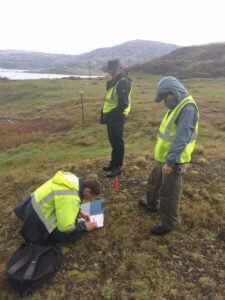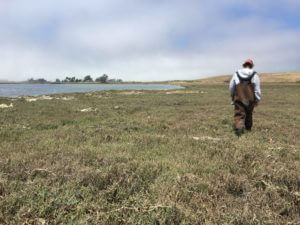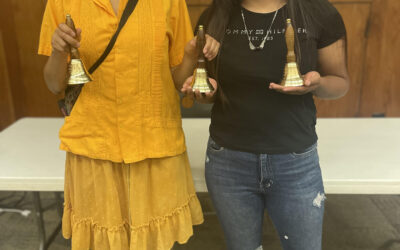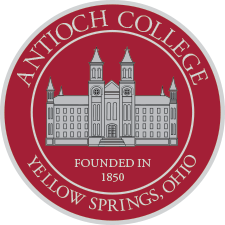Over the course of an Antioch education, Cooperative Education (Co-op) provides valuable work experience alongside students’ studies, while also giving them opportunities for exploration of the wider world. Co-op facilitates work in different fields, helping them determine what they may like, what they may dislike, and other interests they may want to pursue.
Jen Ruud ’18 majored in Environmental Science at Antioch and was able to explore different interests outside of her major through her Co-ops, eventually focusing her academic interests on Urban Sustainability.
After graduating, Jen spent two years outside of academia, working professionally, before pursuing a master’s degree in Sustainability at Wayne State University in Michigan.
“I’m a full-time student, working as a teacher’s assistant for intro biology, and working on my T-RUST (Transformative Research in Urban Sustainability) fellowship requirements,” Jen explains. “These requirements include developing interdisciplinary research with a team, completing community service hours, establishing an upcoming internship, etc. Before starting my master’s degree, I worked as an environmental scientist at a large engineering and consulting firm and worked at a pizza place.”

Jen Ruud ’18 on Co-op in Victoria, Australia, in 2016.
Jen adds that her experience at Antioch has been invaluable because, similarly to Antioch, T-RUST focuses heavily on interdisciplinary research. This has helped Jen understand how to see the connections between disciplines rather than seeing them as separate entities, and has allowed Jen to bring knowledge of different fields into her scientific research.
“So far, I’ve really enjoyed being a part of T-RUST and its focus on interdisciplinary work echoes much of what we did at Antioch.” She adds, “Additionally, like Antioch, it has an internship requirement built into it and works with community partners! On top of taking the courses required for your degree, you get to take courses in other disciplines as well, which has been a fun additional challenge. I took a graduate-level Anthropology course without ever taking Anthropology before and found it incredibly interesting, even though it was hard!”
Transitioning from Antioch to grad school, Jen explains, was “a little rough.”
“After spending just over two years outside of academia and working professionally… There’s a lot of student skills, like studying and exam prep that I didn’t utilize for two years and had to pick back up. That being said, I find that almost every aspect of my professional experience has been applicable to my coursework and gives me additional perspective on the theories and practices we discuss,” she notes. “Another challenge is that when I applied and got accepted to the program, COVID-19 wasn’t a thing. Evolving to be entirely online has been a whirlwind, but Co-op and turning in assignments from half a world away gave me a bit of a leg up on that!”

Jen Ruud ’18 assisting with research on crab populations and their interactions with saltwater marsh erosion in Elkhorn Slough, CA.
Jen explains that developing skills outside of science courses and outside of courses entirely has been incredibly valuable, and she advises current students to try to open as many doors as possible, including exploration of different skillsets and work opportunities. “You never know when a skill you have will pop up and be important and, frankly, you never know where life will take you and what type of work you’ll end up doing! Some of the relevant skills I have, I developed through Co-ops, workshops, and campus jobs.”
“Anyone pursuing a master’s or Ph.D. in Urban Planning, Anthropology, Biology, Civil & Environmental Engineering, Communication, Economics, Education, Environmental Health Sciences, Geology, Pharmaceutical Sciences, Pharmacology, or Physiology departments can apply to T-RUST,” Jen concludes. “The T-RUST fellowship comes with a stipend for one year and covers graduate covers for that year as well. Additionally, you’ll gain the benefit of being an NSF (National Science Foundation) Trainee!”



